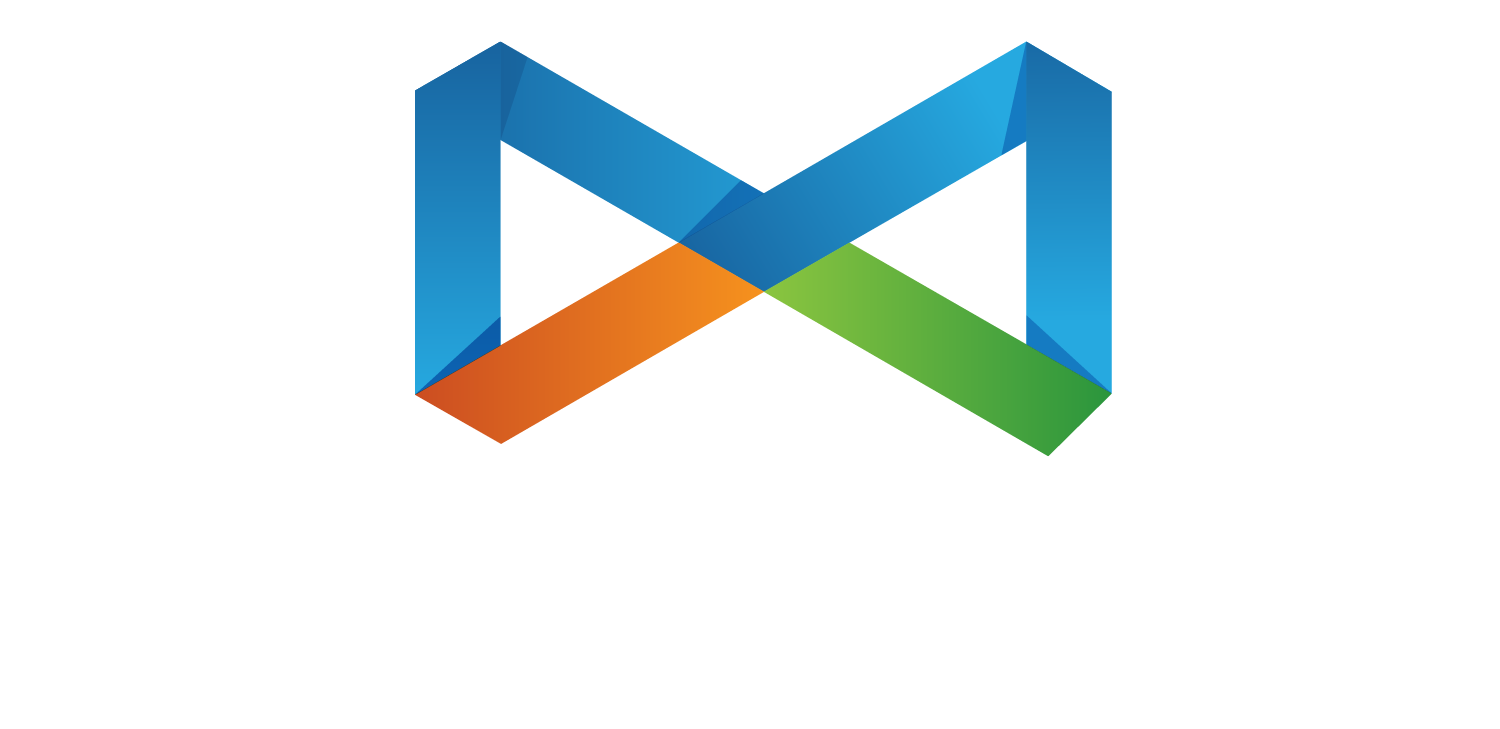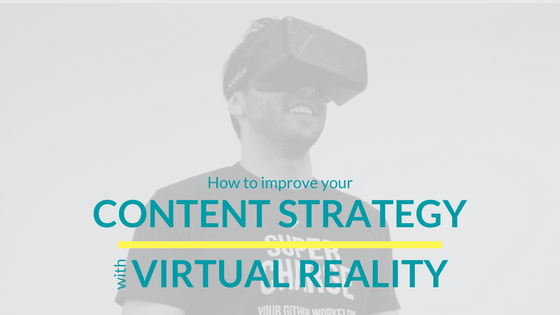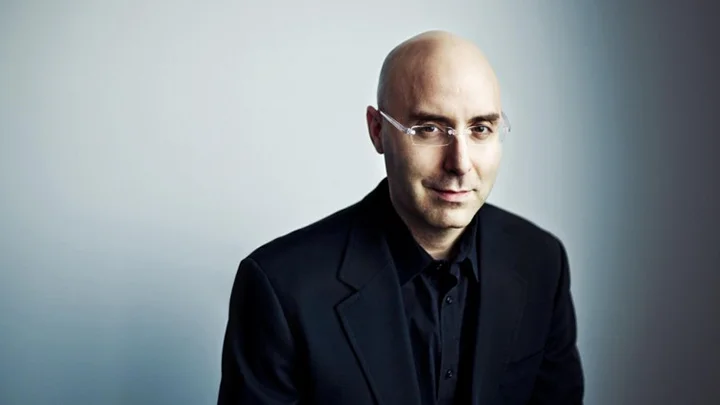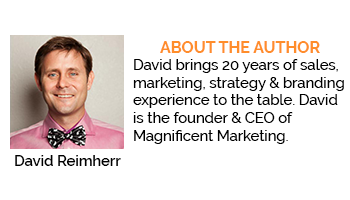When Google wants someone to explain the latest developments in marketing to the top brands in the world, they bring Mitch Joel to the Googleplex in Mountain View, California. Marketing Magazine dubbed him the rock star of digital marketing and called him one of North America's leading digital visionaries. In 2006, he was named one of the most influential authorities on blog marketing in the world. Mitch is president of Mirum, a global digital marketing agency operating in close to twenty countries with over two thousand employees (although he prefers the term, Media Hacker). He is also an author, blogger, podcaster, and passionate speaker who connects with people worldwide, by sharing his innovation insights on digital marketing and business transformation. He has been named one of the top one hundred online marketers in the world and was awarded the highly prestigious Canada's Top 40 Under 40. Recently, I interviewed Mitch Joel to talk virtual and augmented reality. I’ve followed Mitch for years, and with a bio like this, who wouldn’t be excited to have the chance to learn about such cutting edge topics from him? Here are the highlights from our conversation:
DR: Before we dig in to how brands and businesses can use this technology, I want you to first explain what virtual reality and augmented reality are.
Virtual Reality vs Augmented Reality
MJ: The simplest way that I explain this is that we are taking what we see on the Internet- the information & how we have experienced and moving it from a flat screen to basically our real or three-dimensional world.
Virtual reality is the sort of weird, interesting looking head things that we put on, that we strap on to our face, and the big difference between virtual reality and augmented reality is that virtual reality is fully immersive.
Augmented reality allows you to see the world as you currently see it, with information from the internet or three-dimensional information layered on top of it.
So, augmented reality would be things like Microsoft and their HoloLens product, or if anyone has tried Pokémon Go, that was augmented reality, because you were looking through your phone, seeing your environment as it is, and seeing little Pokémon monsters on top of it. Virtual reality is things like Oculus Rift, which is Facebook's platform.
DR: So, they’re similar but different. How would somebody just starting out get going with virtual reality? How about augmented reality?
How to Get Started with Virtual and Augmented Reality
MJ: I actually would reverse engineer that and say, 'What are you trying to accomplish with your business? What types of engagement do you want to create for your customer?' Is there an opportunity for just doing it for PR? Is there an opportunity you want to be first in your industry? Is this more from the innovation side your business where you want to tinker and toil with new and emerging technologies? I think you have to really start with the why, not the what. But if you were interested in building a bridge between what you're currently doing in your business with your digital products and services, to moving to a virtual augmented reality, I do think there are formats and platforms you can start testing and tinkering with that include things like 360˚ images that we're seeing on places like Facebook, or 360˚ video which we're starting to see more of
I call it the 'gateway drug' to virtual and AR, because you can do it now, you can post it now, it's the type of stuff that YouTube and Facebook are almost giving you free SEO on, meaning, they're so hungry for people to try this technology, because they're both so highly vested in these platforms, Google with Tango and Google Cardboard, and obviously Facebook with Oculus, that if you post 360˚ video, they're more than likely going to push that up the feed, and maybe not make you pay so much for boosting it, because they want more content like that on the platform.
MJ: I have a podcast called Six Pixels of Separation that I've been doing for over a decade, every single week, and it's one of the greatest joys I have in my life. I get to speak with smart people every week and have really in-depth conversations. And recently, I had Kevin Kelly on, and Kevin Kelly is one of the co-founders of Wired, very well known author, most recently wrote a great book called The Inevitable about technological trends that are coming. And he's an older guy, he's asking me about what I'm working on, I told him I'm very excited about the applications for brands of virtual reality and augmented reality, and he was sort of, 'Yeah, so how has that audience taken that message?' and I said, 'Yeah, no, it's a lot of crickets, and a lot of stares, and a lot of raised eyebrows, and a lot of folded arms, and a lot of body language that says, 'You were doing so well until you started talking crazy,' that type of thing.' And he said to me something really profound. He said, 'You know, the interesting thing about the stuff we all do in our world, is that what people don't get is that the future happens very, very slowly, and then all at once.'
That embodies the state of VR and AR. So, if you look back when we were talking about e-commerce, we're in twenty plus years of the commercialization of e-commerce, and so many businesses and brands are still not even fully optimized for e-commerce, let alone mobile commerce and things like that, or social commerce.
I think that VR and AR will very much play into that aphorism of Kevin Kelly, that the future happens very slowly and then all at once. I saw that first web browser, I felt like it was going to change everything, and I've been on that journey now for a long, long time, but it still to me feels like it happens all at once, and I'm sometimes behind it. With VR and AR, I really feel like I'm somewhat ahead of it, but in general not.
DR: Imagine how everybody else feels, Mitch, if you feel like you're behind something.
DR: It is overwhelming. But that's why you've got to continue to learn from people like yourself, and the many other great experts out there, and just stay on top of it as best you can, and just do the best you can.
Finding the Right Technology
Can you point some people in the right direction for the technology, or the cameras needed for those purposes of dipping their toes in, just on the three-sixty-degree part?
MJ: You can just shoot a panoramic picture with your great iPhone, or your Android. If you wanted to get the really high end, you would have to find some form of panoramic platform for the higher end cameras, and/or cameras that shoot that way, and/or stitching/editing software to do that functionality as the output of the pictures you take. You can also shoot basically video, and turn that into still-ish type stuff if you want to go from video back to images. So, it's not really about like, 'Oh, there's a couple of these great cameras on the market.' I'm sure there are. I actually don't even really know, and I'm really candid about what I do know and I don't know. I tend to not be a hardware dude. I tend to be more of a, 'This is the output of it, this is what the opportunities are,' versus - it's almost like I understand code, but I can't code if you know what I mean. So, that's a merit to run a successful agency for a long time, but I can't really code. I get what it is, I get what the output of it is, so asking me which cameras is asking me like, 'What type of code should I start to build my thing in?'
I tend to shy away from that, because candidly, I just don't know. What I can tell you is that the platforms are available for you to distribute them. So, like your Facebooks and your YouTubes of the world, and your Googles of the world, are providing software development SDKs, there are APIs, application process things, application developers, and tools you can plug into your own software to do a lot of stuff in early, early days, and I think the best thing to do is really ask the people who are the experts on the hardware and development side of it. But I think what the better idea is - and people say like where to start - I think it's just making a decision. Do you want to do something that's augmented reality based? Do you want to do something that is a virtual reality based? I think that's the important thing, because as much as we lump them together, they're two very different experiences.
Adding Virtual Content Creation to Your Strategy
Next is, once you figure out who are the people, and how do we do this in, I guess the sort of sausage factory of it, like how does it get made - I think the important question to figure out is, what are you making it for? My general thoughts on this are, you want to be able to control the situation as much as possible. So, one of the favorite examples I talk about when I talk about this being a sort of experiential marketing platform is, Wells Fargo actually did this - I guess what most of us do. It's like you go to some sort of events, and they have a booth there, or they have an experience there, and what they did was, I guess they figured, 'Hey, we're Wells Fargo, it's not going to necessarily be that easy to get people to come over to our booth or our area.' What they actually did was, they built some stuff in Oculus, so, virtual reality, and what they did was, they put these at their experiences. And the idea was they wanted people to see them more as a playful bank, so these experiences weren't like you're suddenly in a virtual reality bank. It really was nothing more than simple games that allowed people to experience Oculus, to see what virtual reality is, to go 'Wow, this is so cool,' and at the same time they spent a couple minutes more than they probably would have spent had the bank been handing out piggy banks, and calendars, or whatever they do these days.
And the experience of what VR was, wasn't really related to the bank so much as it was just games. I like that, not just because it's not connected - I don't think that's what I like about it - what I like about it is the fact that you have two or three Oculus sets, you have your staff on hand to show people how to do it so that they themselves aren't stumbling through technology and having a bad experience, you can really control the environment because it's your environment, and you can have an outcome where either you're getting press, media people are talking about it, people are sharing it, or getting people to say, 'Hey, if you're going to this event you need to go check out the Wells Fargo experience, because it's there, and it's virtual reality. It will be your chance to try it out.' So, I think more about how to get it done from that side, like why are you doing this, which one will you go with, where is the opportunity for you, how do you do it in a way where it creates the best brand experience? My fear is that there's a lot of speed bumps right now to make virtual reality and augmented reality more mass accepted, and I really believe it's incumbent on the intermediary, so in this case it would be the brand, between virtual reality and the brand, and then the customer, to make sure what the customer sees is a great experience, and that's really hard to do because it's just the nature of where we're at with this stuff right now.
DR: At least for me personally - I assume other people might be the same way - using cases, examples, real life stuff that's going on and what other people are doing is a good way for me personally to wrap my brain around some stuff. Like you definitely seem big picture, and the 'why' versus the 'how' and the 'what', basically, which is where they all say to start, starting with Steve Jobs and how they went around their business model, and marketing model and everything. So, that's awesome, but I would love to see if you can talk more about some examples.
MJ: I'll give you two. One is McDonald's. Somewhere in one of the European countries, what McDonald's did was, they took those Happy Meal boxes, and you're able to, once you're done your meal, fold it up in a way that makes that the actual Google cardboard version of the application. So, you download the app on your phone, McDonald's virtual reality app, you fold up your Happy Meal and it becomes a viewer, you slide your phone in, and suddenly your kid can have a virtual reality experience. I want to caveat this to say it wasn't the best experience, not like I say them and went, 'Wow,' but I thought the way to get that customer, as I said earlier, that intermediary between the brand and the experience connected was really powerful, right? They're in the restaurant, they're eating, they have this box that they would typically toss away, you're turning it into a piece of technology. They might take it with them, it might be on their night table, they might try it again later with the application, show it to a friend - I felt like that was a really good way, in a small controlled way - because they didn't roll this out across the world, they chose one specific European country. I think it was Sweden, I could be wrong, but I thought that was really powerful.
My favorite use that also illustrates - I think the coolest part about AR and VR is what you can and can't to do with the technology, that you can't definitely do with the current internet and mobile experiences that we have, and this one illustrates that. Lowe's has been really aggressive in this space - Lowe's is the home hardware type of big retailer - and they created a virtual reality experience that allows you to obviously do the obvious. What's the obvious? It's, 'Here's the dimensions of my kitchen,' and you can literally go into virtual reality and see what it would be like to walk through the kitchen as you have fully redesigned it, from the tiles, to the faucets, to the handles, to the cupboards, and that's great. And yeah, you have the same reaction most people have, like 'Wow that would be super cool,' but let me kick it up and really show you what made the virtual experience something that you can only do in virtual reality and couldn't do anywhere else. There's a feature on it that allows you to put in your height. Now, why your height? Because what you can actually do is lower the height to the height of your child, and be able to walk through in virtual reality your future kitchen, and see it from the perspective of let's say for example your five-year-old kid. Will they be able to reach the top drawer? What will they see? Will it look intimidating? Scary? Will it look open? Closed?
And it's something that's somewhat minor, but I think transformational in terms of having that experience and being able to do things with it, and I call that the sort of 'pushing marketing' of it, where like you're really pushing it with features and functionality that you just can't get anywhere else. Those are two. Other great applications that we're seeing is if you look at the Holo Lens which is augmented reality, Minecraft. Just imagine playing Minecraft in augmented reality, where literally the buildings and things you're building are on your coffee table in your den, and it's fully three dimensional. You could walk around it, and touch it, and move it, and it's sort of like people often say Minecraft is like a game/digital version of Lego. Well, imagine that actually coming together where you're physically building it, moving your hands, and you can see it as a three-dimensional physical object that sits on a table because of the power of augmented reality and Holo Lens. And listen, I can go on and on in terms of applications and opportunities.
DR: But are these technologies right now mainly for big businesses on big budgets, and if not, do you have any use cases for smaller companies on smaller budgets? How can they utilize these new technologies?
MJ: So, it's interesting, because there's a side that says, look, for this to work from brainpower, to development, to tools, to technology, it can be an expensive process, yes. But I go back to early days of the internet, and it would have been easy to say only big companies can have websites. What actually made the internet the internet was a more ingenuity, a bit more elbow grease, but anybody could build a website and be on the web. And I would like to bring that approach, and that thinking, and that ethos to AR and VR, because otherwise what happens is we get caught in a world where only the FAANG businesses can do this, right? Facebook, Apple, Amazon, Netflix, Google - they're called FAANG as the big sort of the tech five, and I don't want that to be it. It probably is an inevitability that it's going to be consolidated amongst just a handful, if not less, of global conglomerates 'Welcome to Skynet' type of thing for sure, but right now I think what makes it interesting is that because this is new, because there's a new language, because there's a new medium, because it's a new opportunity, that yes, I'm hopeful that more and more people will see it as an opportunity.
The problem, of course, is just mass adoption. them, immersing the team and then going, 'What would we do if we had the opportunity?' That type of thinking I know has been democratized and accessible to any brand.
DR: Google Glasses, obviously, they didn't really take off as much as they would have, and again, that could just be the early adopter thing, but just out of curiosity - and you mention a couple other technologies that are coming out like I think you mentioned the Holo Lens. What else do you see coming down the pipeline that we should be on the lookout for?
MJ: Well, Holo Lens is here, and you go to the Microsoft stores and try it out. You can order it online. The Google Glasses is a great thought. I feel like a lot of times it's just timing. You know, why Myspace? Why Facebook? Why YouTube and not Vimeo? Why Snapchat and Periscope? You can sort of go through like a lineage of digital carcasses if you will, and see some things, there's this sort of magical thing of product, place, time, acceptance, zeitgeist, that is a very hard to sort of whip together, and I find it really curious. You know, Snap Inc., formerly Snapchat, has launched the spectacles to allow people to shoot and give perspective in a different way, and no one is laughing at that, but people laughed really hard at the sort of Google Glass that literally became knows as these 'glassholes' is how people were describing people who wore them back in the day. It's pretty mind blowing.
So, the Google Glass one is one that perplexes me in the sense of, everybody is very bullish on AR and VR, and Google Glass was clearly an augmented reality platform, and yet they were very quick to let it die, and I think it just had to do at this point with timing and application.
DR: And you never know. Maybe the camera will invert itself on our phones, and we can look out onto stuff.
MJ: And people are talking about things like contact lenses, people are talking about things like when the technology is so good that you don't need anything, that you can just look at a wall, and by making a motion, or a face motion, or a voice, it'll pull up some form of tech. I mean, there's a lot of eager beavers here, and I always laugh, it's like I think about the Holodeck in Star Trek, because I'm one of those types of nerds, and I'm like wow, we're like basically there with some of these platforms, and how long will it be until it's not even the Holodeck, it's just everywhere?
DR: And the spirit of the universal application of it, I know that one of the uses of augmented reality is on physical pieces, printed pieces, walls, postcards, possibly even billboards, posters, banners, whatever, and you can hold your phone up to it, and it can do it. Now, I grew up in the printing world, and I saw AR fizzle, and I think one of the main reasons it's fizzled - because it was way better that QR codes, but there were universal QR code readers, and with augmented reality, everybody had to have their own individual app. And I think that was a big problem for the other side of the equation, which is the marketplace and the people who were going to be doing it. Do you know if that will change, or is it possible for that? I mean, I guess everything's possible, but do you see that possibly changing AR having like a universal augmented reality reader like you do with QR codes?
MJ: I think that there needs to be one ring to rule them all in AR, and the same thing in VR, and those are going to be different platforms. But I also think that you're bringing up a really salient point, which is, even if we have it, and even if it works, and even if it's 4K, seamless streaming, not massive files, doesn't make you throw up because it's nauseating - whatever the sort speed bumps that we have that we need to overcome to get there, it's still about the experience. I would actually argue that AR and QR codes didn't fail at physical spaces because of the technology hurled. I'd argue that the people who used it and tried it had a terrible experience, because what happened after you used it was a bad experience. And again, Scott Stratten's 'QR Codes Kill Kittens', and all of that world of how bad those experiences were, people putting QR codes on moving trucks and stuff, I mean, just terrible. And then when you finally did use it, you want to like their mobile website, which was just a terrible version of their big website. It didn't really have anything, or it was a bad call to action or bad experience.
DR: So, magic question, when do you see this taking off?
MJ: Well, great question, Dave, and my answer to you is the future happens really slowly and then all at once. That's when. I don't know.
Yeah, and I look at it, there are like two sides of it for me, where one side, there's a lot of money, and a lot of the big players, your Google's, your Facebook's, your Sony, your Microsoft's all betting big on this, so there's a sort of push to get consumers there, and I feel it, and it feels now and imminent, right? Oculus is now. Microsoft Holo Lens is now, Google Cardboard is now, Google Tango Project - there are a million things happening now. It's clear Sony PlayStation is coming, it's now, but when is everybody going to be like yeah, yeah, let's go? E-commerce, mobile, smartphones, applications, websites - we could go on and on, and we could also, you and I could debate like, when did the Web really hit? What year was it? And it would be really hard for you and I - were both living and breathing in the space- to pinpoint it. I think about - we're doing a podcast here. Like I said, I started my podcast over eleven years ago. Eleven, and I've never missed an episode, every week, about thirty minutes to an hour every single episode. And I'm not saying that like 'Look at me, look how great I am,' but I find it hilarious that in the media right now is 'this is the year of the podcast'.
Eleven years I've been doing a show, and people like Mark Marin who have similar formats, these sort of long form, in-depth conversations - and I'm not saying - Mark did not copy me, probably doesn't even know that I exist - similar sort of formats - that he developed his five/six years after I did. And again, not because I did it - he decided on his own format that happened to be similar to where I was going with it, and here we sit with hundreds and hundreds and years and years of episodes, and somebody might argue fairly right now, podcasting hasn't even come close to having its moment yet. So, you're asking me about a platform that we are in the sort of mosaic web browser moment of. I would hazard to guess other than Kevin Kelly, 'the future happens really slowly and then all at once'.
DR: Do you have any parting thoughts?
MJ: Well, let me tag on to what you said and basically say you have to sort of being somewhat bullish. You might want to be investing ahead of the curve, you might want to try and figure out when that curve is happening, when that spot's going to happen, but ultimately it's coming, it is here, and if someone said to me today they are focusing as a marketing agency solely on creating augments and virtual reality experience, or even just virtual reality experiences, or just augmented reality experiences for brands, I wouldn't look at them sideways and think, 'Oh, you're going to be bankrupt next year.' I would actually look at them and think this is a company that if they do this well, probably could have a very long runway. Can they make it through? Can they sustain themselves while the industry sorts itself out? That's the risk of entrepreneurship.
DR: How can people continue to learn from you?
MJ: Search for Mitch Joel on Google, and everything I have and am is right there.
About Mitch Joel
When Google wants someone to explain the latest developments in marketing to the top brands in the world, they bring Mitch Joel to the Googleplex in Mountain View, California. Marketing Magazine dubbed him the "Rock Star of Digital Marketing" and called him, "one of North America's leading digital visionaries." Back in 2006 he was named one of the most influential authorities on blog marketing in the world. Mitch Joel is President of Mirum - a global digital marketing agency operating in close to 20 countries with over 2000 employees (although he prefers the title, Media Hacker). He has been called a marketing and communications visionary, interactive expert and community leader. He is also an author, blogger, podcaster, and passionate speaker who connects with people worldwide by sharing his innovation insights on digital marketing and business transformation. He has been named one of the top 100 online marketers in the world, and was awarded the highly prestigious Canada's Top 40 Under 40.













